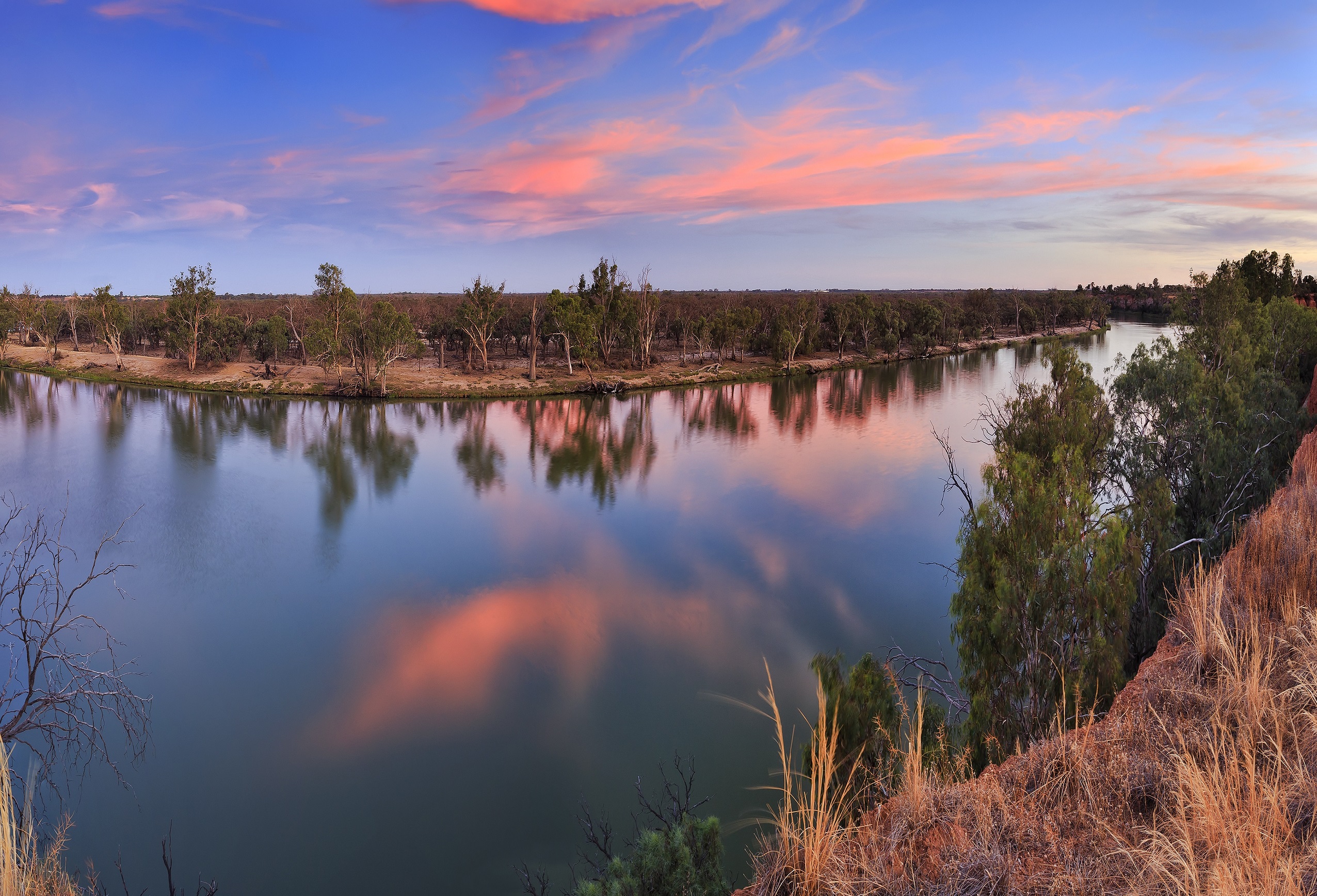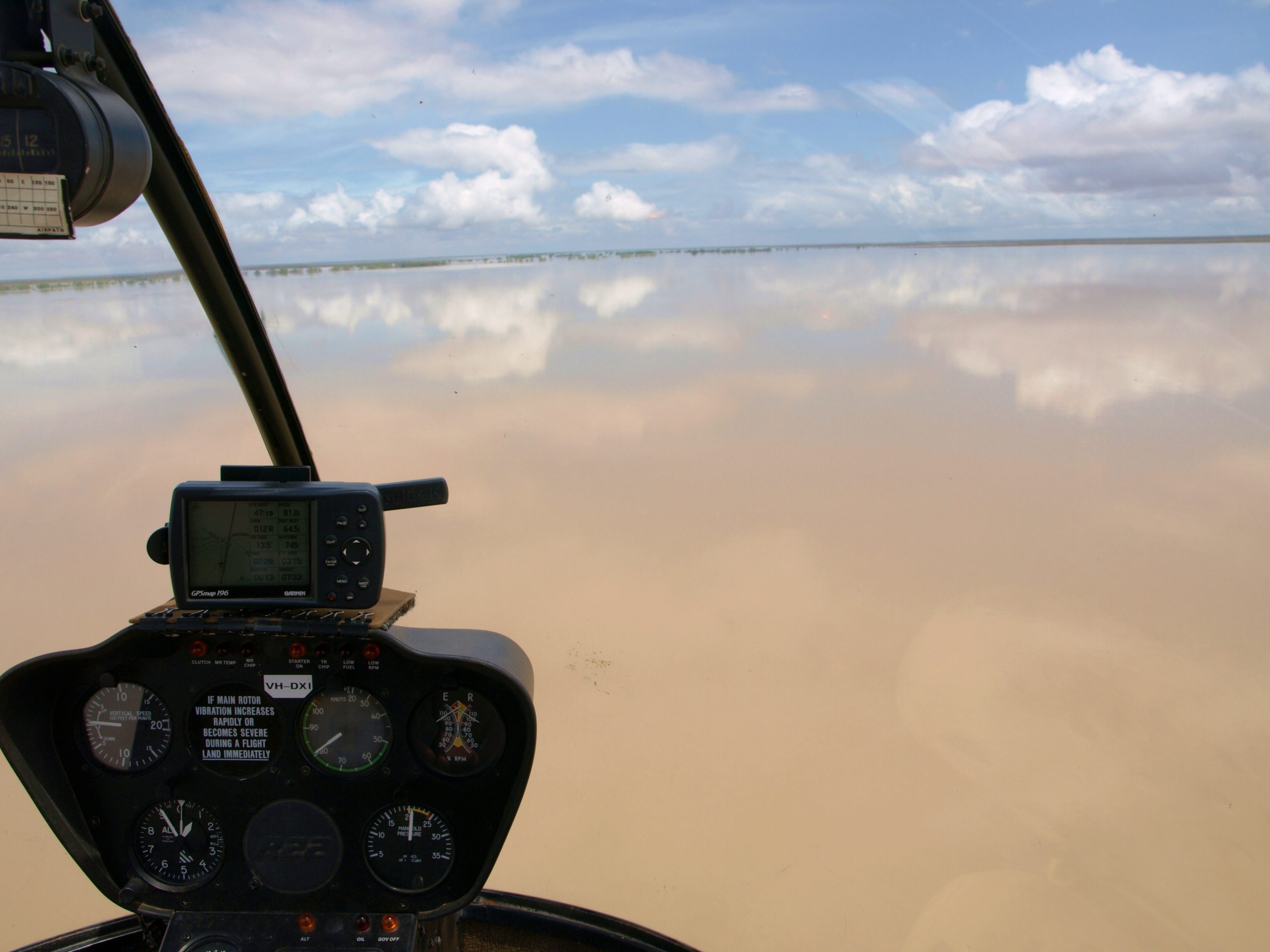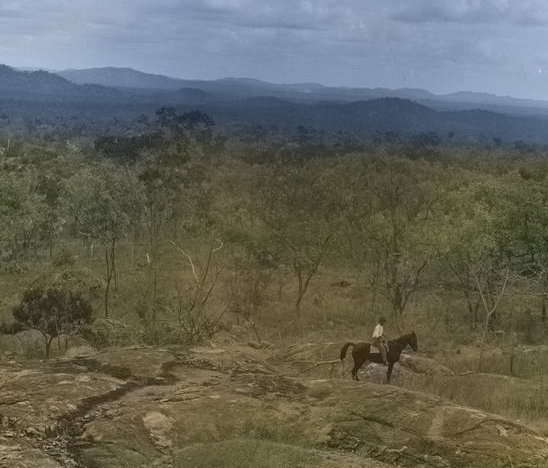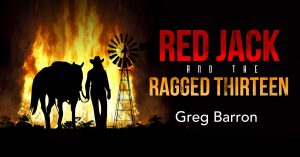
Every day Alfred Searcy wrote a new entry in his journal. He saw himself as a sea-captain, with the vessel being his own body. Just like James Cook or Matthew Flinders, on land and on water. He set down in detail the events of the day; ground covered, and places visited.
Borroloola had proved to be a difficult posting, and already Alfred’s journal was filled with accounts of wild adventures. On just the second day of he and O’Donahue’s arrival they had been forced into forming a patrol, following up rumours of a gang of Chinese extortionists who had set up a faux customs post on the border with Queensland. These charlatans were, apparently, charging travellers a fee to enter the Territory.
It was only through the skilful use of their rifles that the two policemen had managed to subdue an angry mob and arrest the perpetrators. Then, just days after dealing with this outrage, a ketch sailed into the Borroloola landing. The crew reported that their captain had been clubbed to death when attempting to “hire” a young Yanyuwa woman as a house maid.
It seemed prudent to send just O’Donahue to deal with this, but the local men who volunteered as deputies made themselves so drunk on the voyage downstream that they started an all-out war on a bushfire, convinced that the burning trees were black warriors holding burning torches. O’Donahue finally managed to restore sanity, but not until the party’s ammunition was near exhausted.
Meanwhile Alfred attempted to maintain the rule of law in the town, a near impossible task. Internal order was hard enough, but raids for women on already persecuted groups of Yanyuwa and Binbinga, reprisals by the same, and regular cattle-spearings saw black-white relations reach boiling point, and the threat of violent confrontation was always present.
One day, a wild local youth, with a bush of black curly hair and a sliver of bone through the septum of his nose, hurried into the newly-completed police station and reported that a big mob of his people had yarded some cattle out at a lagoon and were slaughtering them at will.
“Them bad blackfellas,” he warned. “Kill plenty cow.”
Alfred made up a party made up of himself, Cameron the publican, Billy McLeod the storekeeper and a couple of trackers. Guided by the “informer”, wearing chains as a “precaution”, the posse rode off to investigate.
Reaching the lagoon in question, there were no cattle in sight, least of all a large party of Yanyuwa. The informer tried to slip his chains and creep away but his horse bolted, dragging him bodily alongside the lagoon until the chain came adrift from the horse and he escaped into the water. The white men supposed that he had likely become lunch for a ‘gator.
‘Does this look like a set-up to you?’ Alfred asked his companions. ‘Did that rascal lure us out here on purpose?’
Old Billy McLeod, who had been around the traps for a while, had no doubt. ‘Well I guess we were probably the only sober white men with weapons in Borroloola, and now we’re in the middle of bloody nowhere. Yeah, for my money it’s a trick.’
‘You think the Yanyuwa would dare to take on Borroloola?’ The consensus was that they would.
Riding as fast as possible back to town they found a party of three hundred armed black men advancing on the cluster of shanties and shelters that made up the town. The party of whites charged, firing into the air (according to Searcy’s journal, but the truth may well have been more lethal) as they went, forcing the hostile party towards the river, where they swam across to the other side, but remained a threat for some days.
Soon after, with O’Donahue back from his excursion downriver, they were faced with arresting a notorious local ruffian called “The Orphan” who had set up a butcher’s shop, helping himself to Macarthur River Station cattle to provide the beef.
Next came a local race meeting. This “entertainment” provided many pages of fodder for Alfred’s journal. The township had, by then, its own racecourse. O’Donahue loved to ride, mounted on a horse that he had changed the name of three times.
When he first purchased the gelding, he had been named “Coronation”, but after a disastrous race at the Adelaide River, he’d renamed it “Ruination.” Now, however, when the horse delivered him more wins than losses at Borroloola he rewarded the animal by renaming him “Reformation.”
The race-going crowd, consisting not just of the Borroloola locals, but all the ringers, prospectors, brumby-runners and n’er-do-wells for two hundred miles around, coped with the heat by drinking the town absolutely dry of alcohol in a three-day binge that left many suffering delirium tremens. Some wandered off, initiated gunfights or fell into the river. Some of the survivors robbed the store, carrying away and drinking every item that resembled alcohol, including Lea and Perrins sauce and cough remedies.
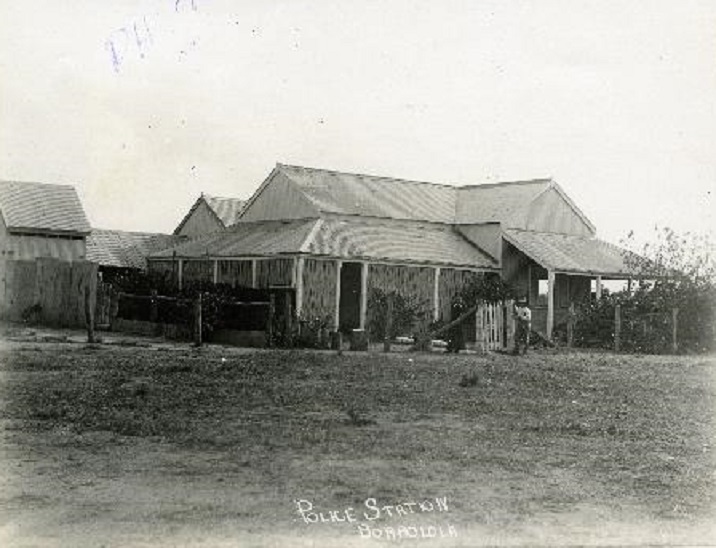
Alfred was recording this latest round of adventures, sitting on the verandah of the police station, when he heard the sound of a horse, driven hard. He turned to look just as it came to a stop outside.
It was their old friend Billy, lean from hard riding and sweating visibly. Alfred directed him to the stables around the back, then, at the verandah table, he poured a pintpot full of tea, and gave the rider a couple of plugs of tobacco.
‘So Billy, have you seen the Ragged Thirteen?’
‘I think I mighta done, Mulaka.’
O’Donahue came through the door in time to hear. ‘What d’ye mean you think you mighta done? Those rascals stand out like balls on a bulldog.’
‘Yes boss, but I been gone a long time. Maybe I can’t remember what I seen.’
‘You cheeky beggar,’ O’Donahue spat.
Alfred pulled his purse from his pocket, removed a shilling coin and flipped it to Billy. ‘Oh I don’t mind a bit of pluck, and he has come a long way. Now where did you see the Ragged Thirteen, and did they break the law?’
‘I seen ’em at Vic River Depot. They half-drown one bloke, then steal all his money and grog.’
‘Where are they heading now?’
‘Victoria River Downs, then Halls Creek.’
Searcy smiled and turned O’Donahue. ‘We’ve got those Ragged Thirteen bastards cold. Better pack for two weeks.’
‘Do you think it’s a good idea to leave Borroloola?’
‘It’s been pretty darn quiet after the races,’ Alfred said. ‘We must go where duty dictates, and besides, we’ll be back in a week or two. Not only that, those vagabonds made fools of you and I. We can’t let that rest.’
O’Donahue grinned. ‘To be sure, you’re right, Alfie. Let’s go get them.’
Continues next Sunday …
©2018 Greg Barron
Whistler’s Bones by Greg Barron is available at all good book outlets, Amazon, iBookstore and ozbookstore.com
Camp Leichhardt by Greg Barron is also available from Amazon and ozbookstore.com
Galloping Jones and Other True Stories from Australia’s History is also available from Amazon, iBookstore and ozbookstore.com
